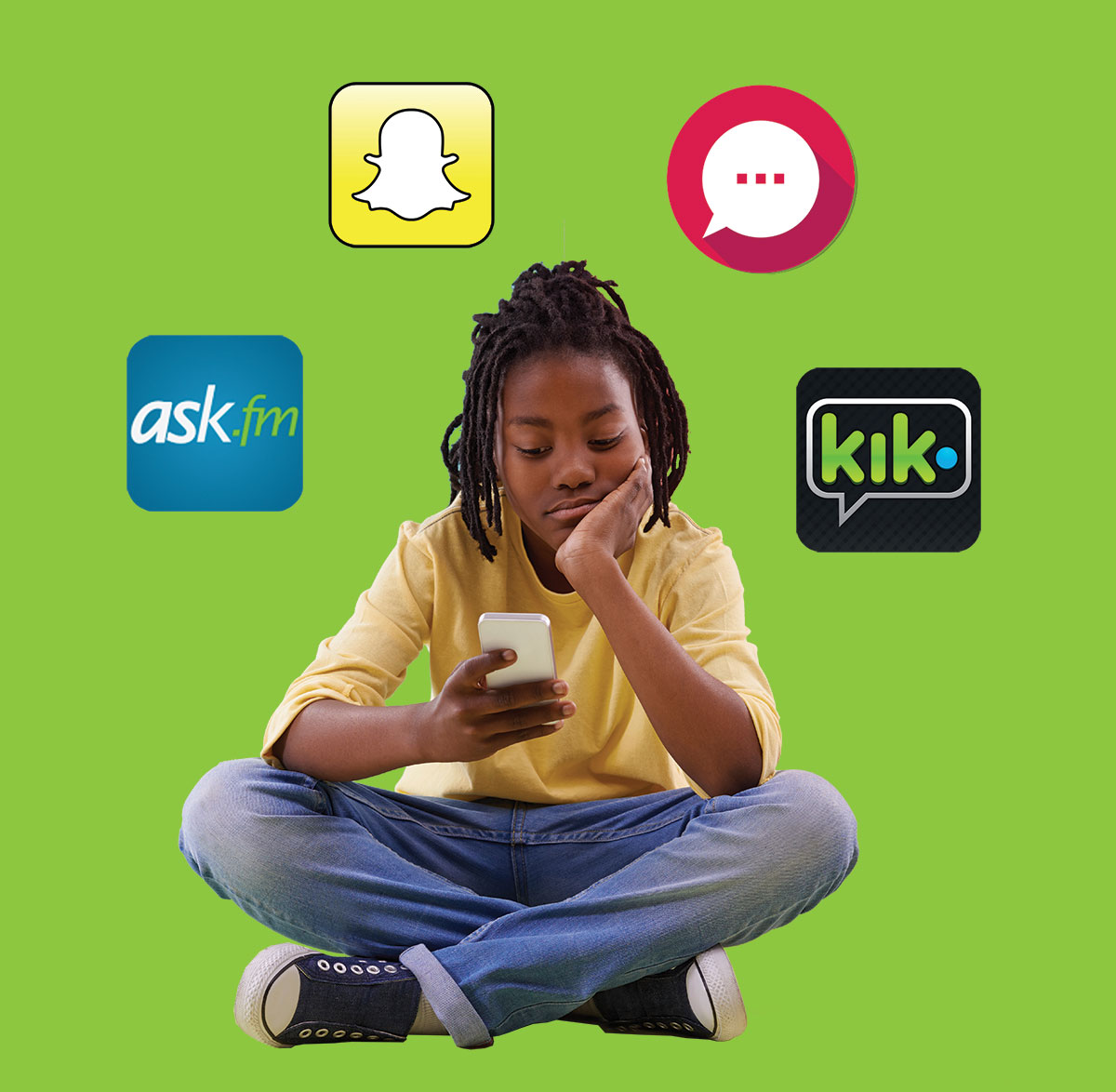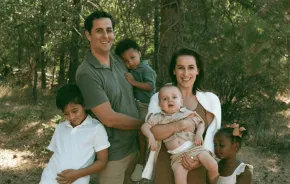
So you’ve laid down the ground rules. You’ve talked to your kids about Internet safety. And now your teens are loose out there, roaming the cell phone Sahara for hours each day. How involved are you in their screen time? Do you know what apps they use? Which platforms are harmless, and which ones invite dangerous behaviors, such as cyberbullying and sexting?
What are they so busy doing with that device? What are the warning signs that indicate you need to have a serious talk with your child?
Katie Greer, the founder of KL Greer Consulting, travels all over the country to provide Internet safety training to children, parents, educators and law enforcement officials. She previously worked as an intelligence analyst for the Massachusetts State Police and as the director of Internet safety for the Massachusetts Attorney General’s Office, so she has the investigative mind and tracking skills of some of the world’s sharpest parents.
I spoke with Greer about what parents of teens should really be watching for, right now.
Q: What social media apps and platforms are currently trending among children and teens?
A: Snapchat and all these disappearing apps are still huge. Snapchat has replaced sexting, and kids send images more freely because they believe they’ll disappear. But these photos can be screenshot by the recipient. Even if they’re not, the images do not simply go away. Last year, hackers gained access to thousands of pictures that had supposedly been deleted.
Flinch is a really popular app where kids are randomly connected to strangers via live video chat. It’s really big right now, and it’s really inappropriate. You can be connected to anyone of any age, anywhere in the world. People log on and are naked and say really inappropriate things. One kid logged on and put a gun in his mouth. What’s also dangerous about this app is that, if a child has their geolocation turned on, it allows strangers to track down where they live and gain other information about them.
Q: When it comes to cyberbullying, which app is the most dangerous?
A: Believe it or not, Ask.fm is still really big. If your kids are using it, it’s an invitation for trouble. The app allows kids to anonymously ask questions and make comments to other users. It’s notorious for cyberbullying, because the anonymity often leads to children saying terrible things to each other.
The biggest rule for parents of children of any age is to be involved reasonably, just like they’re reasonably involved in everything else in their [children’s] lives. Unless your kids are getting into trouble, you don’t need to check every text or every single post. It’s the same as being reasonably involved when they’re spending time with their friends.
Q: What’s your advice to parents when it comes to monitoring their children’s social media activity?
A: The biggest rule for parents of children of any age is to be involved reasonably, just like they’re reasonably involved in everything else in their [children’s] lives. Unless your kids are getting into trouble, you don’t need to check every text or every single post. It’s the same as being reasonably involved when they’re spending time with their friends. Kids are spending an average of 7.5 hours per day on some sort of screen — so if parents aren’t involved in that, they’re missing a massive a chunk of their [kids’] lives.
Q: What is the most important thing parents should teach their children about healthy social media use?
A: A general rule, although it sounds fluffy, is to teach compassion. Behaviors like cyberbullying and sexting all go back to not being taught kindness. Really, the root of this doesn’t go back to the evil of technology. It’s about teaching kids compassion. We need to talk to our kids about things like bullying and treating others with respect.
Q: What are parents worrying about or focused on that they don’t need to be?
A: In general, it’s important to remember that social media is more good than bad. You don’t need to worry all the time; just be aware and be in communication. Technology and social media aren’t inherently bad things. We need to educate our kids to not make poor choices like cyberbullying and sending nude photos. But, parents should rest assured that there are many positives to social media, and most of what kids are using it for is good.
Q: What are parents not concerned about that they should be paying attention to?
A: Strangers. We talk to our young kids about not walking away with strangers, but after kindergarten, we don’t have that conversation anymore. We don’t have that conversation with our ninth-graders. The kids that friend me on Instagram have thousands of followers, and they can’t possibly know all those people personally. This is cause for concern because many kids put geotags on their Instagram posts.
It’s a really big issue that kids are connecting with people they don’t know, and there are apps that encourage that. Kids converse on messaging apps like Kik with people they don’t know. A young girl I spoke to in Washington had been talking to someone on Kik, and it turned out he was an older man across the country.
Q: What is the biggest issue facing kids right now when it comes to social media?
A: Privacy. It’s been a concern for many adults, but it’s not something that kids think about when they sign onto these social media sites. Many social media apps store our information, and it can be stolen or used in other ways. For example, loan companies and banks are going to start aggregating information from Facebook profiles to see who is living lavishly and then compare it to their income.
Facebook owns the photos you post and a lot of websites and apps operate the same way. It’s important to remind your kids that on platforms like Facebook and Instagram, their searches are not private, and the companies own their posts and photos.
Q: What are signs of unhealthy social media use that parents should be looking for?
A: When kids are hiding things or ducking away, that’s something I would pay attention to. If they need 10 more minutes on their phone after you said to put it away, that’s something parents should question their kids about. Ask why they needed more time and who they were communicating with. If your child consistently fails to follow your screen-time rules or can’t sit through a family dinner without checking their phone, it’s cause for concern, and it’s time to have a serious talk and impose stricter limitations on their screen usage.
Q: How can parents ensure that their kids are keeping their social media habits healthy?
A: You have to set limitations. It’s unhealthy to be engaging in any activity too much, even something healthy like riding a bike. When it comes to social media, it’s really dangerous to give kids unlimited access to their screens whenever and wherever they want. That’s when problems begin to arise.









